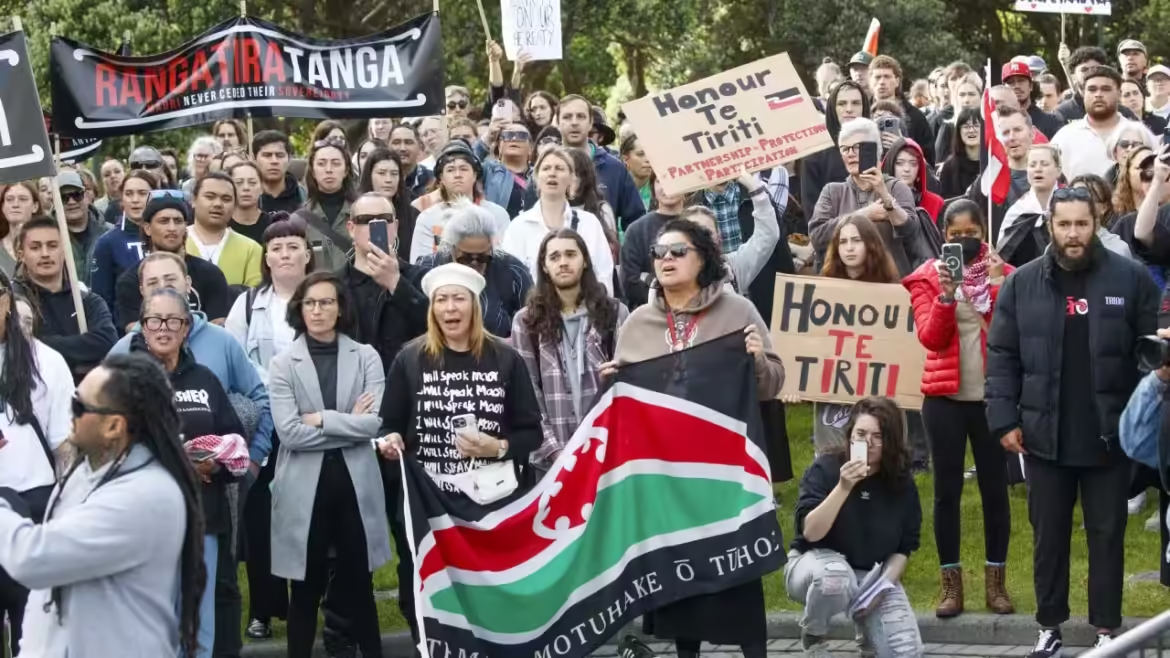On Thursday, New Zealand’s new center-right government introduced a bill aimed at reinterpreting the Treaty of Waitangi, the country’s founding document. This move has triggered protests from Indigenous Maori groups who argue that the bill threatens their rights and undermines key principles of the treaty.
New Legislation Aims to Clarify Treaty Principles
The Treaty of Waitangi, signed in 1840 between the British Crown and over 500 Maori chiefs, serves as the foundational agreement for governance in New Zealand. It has continued to influence legislation and policies, with specific interpretations often guiding government actions. The proposed Treaty Principles Bill, introduced by Associate Justice Minister David Seymour, aims to have Parliament define these treaty principles rather than leaving them to judicial interpretation.
According to Seymour, leader of the ACT New Zealand party, the bill seeks to provide “certainty and clarity” around the treaty’s principles while encouraging broader discussion on its role in New Zealand’s constitutional framework. “The principles aren’t being erased. But it’s Parliament’s place—not the courts’—to define them,” Seymour stated.
Mixed Political Support for the Bill
The ACT Party, which secured 8.6% of the vote in the 2023 election, has been critical of governance arrangements that involve power-sharing between Maori and the state. They argue these policies disadvantage non-Indigenous citizens and have proposed the bill as a step toward equal treatment. The National Party and New Zealand First, coalition partners, have agreed to support the bill’s first reading but stated they would not support it in its final stages. The bill’s first reading is scheduled for next week.
Protests and Concerns Over Consultation
The government’s decision to bring forward the bill’s introduction by a week, without consulting Maori leaders, sparked immediate protests. Demonstrators gathered in Auckland and outside Parliament in Wellington, holding signs reading “Shame” and “Equality.” Maori leaders condemned the decision as “dishonorable,” emphasizing the lack of consultation as a disregard for their community’s perspective.
Prime Minister Christopher Luxon defended the decision, explaining that advancing the bill earlier was part of the government’s plan to address multiple legislative items before Christmas. “We regularly adjust our legislative schedule. This isn’t out of the ordinary,” Luxon told reporters.
Stay connected to know more on arcnews.online for global news like New Zealand’s Proposed Treaty Bill Sparks Protests from Maori Groups. For videos updates visit our YouTube. Do subscribe to Arcnews to get latest updates directly in your mail box.
Have A Great Day.


